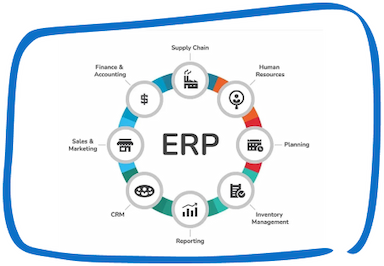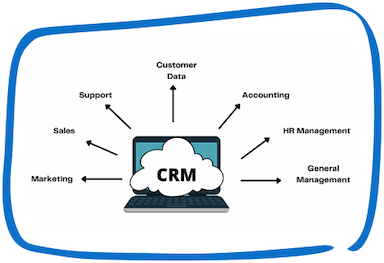In today’s highly competitive business environment, where the success of an organization hinges on the composition of its workforce, the role of HR (human resources) and HR software has evolved into a strategic cornerstone. Among the pivotal compliance responsibilities of HR professionals is the execution of thorough pre-employment checks. These checks are not only vital for legal compliance but also instrumental in building a skilled and dependable workforce.
Pre-employment checks extend beyond the mere validation of basic credentials. They form a critical component of risk management, ensuring that new hires align with the company’s values, possess the requisite skills, and maintain a clean background. In this comprehensive guide, we delve deep into the complexities of pre-employment checks, providing HR professionals with valuable insights and practical tips to adeptly navigate this indispensable process.
What Do Pre-Employment Checks Entail?
Pre-employment checks, commonly known as background checks or pre-screening, encompass a vital series of procedures conducted by employers to assess the suitability of prospective candidates before reaching a final hiring decision. These checks are executed using HR and recruitment software during the recruitment process and are designed to confirm the accuracy of information provided by applicants, evaluate their qualifications, and identify any potential concerns that might impact their performance, conduct, or eligibility for a specific position. While the scope and depth of pre-employment checks may vary based on the job’s nature and industry, they typically encompass aspects such as:
- Verification of the right to work
- Examination of criminal history
- Validation of educational background
- Review of employment history
- Reference checks
- Evaluation of credit history (if relevant)
- Verification of professional licenses or certifications
Primarily aimed at ensuring the integrity and trustworthiness of new hires, pre-employment checks serve the interests of both employers and job seekers. For employers, these checks help mitigate the risks associated with negligent hiring, maintain a safe and secure work environment, protect company assets, and elevate the overall quality of the workforce. Candidates also benefit, as pre-employment checks promote transparency and contribute to a fair assessment process. Ultimately, these checks enable employers to establish a workforce characterized by professionalism, reliability, and competence.
The integration of pre-employment checks into the recruitment process typically occurs at a specific stage, often following the initial screening of CVs and applications, although in some cases, it may occur after a job offer has been extended. The timing and specific checks conducted depend on whether the organization is bound by legislative requirements and, typically, on the nature of the role and the seniority of the candidate.
A Comprehensive Look at Pre-Employment Checks
In today’s competitive job market, the process of recruiting highly skilled individuals who are well-suited for a role has become a crucial concern for organizations, irrespective of their size or industry. The aim is to enhance employee retention and reduce turnover by avoiding the hiring of unsuitable candidates right from the start. This approach can significantly cut down on the time, resources, and costs involved in recruiting replacement candidates, or addressing the disruptions caused by unsuitable hires, whether internally (due to decreased morale) or externally (with negative effects on the company’s reputation).
To secure the most suitable candidates, organizations must conduct appropriate and proportionate pre-employment checks to assess a candidate’s suitability. With traditional recruitment practices evolving, partly driven by technological advancements, organizations must ensure that their pre-employment screening procedures adhere to both legal and ethical standards.
This guide sheds light on the key checks that most organizations typically perform during their recruitment processes, while also elucidating the associated risks and practical considerations that come into play when extending employment offers.
The following pre-employment checks are explored in detail:
Right-to-Work Checks: The global mobility of job-seekers imposes a responsibility on organizations to verify that they are not hiring individuals without the legal right to work in the UK or undertake specific roles.
Criminal Record Checks: To fulfill legal obligations and ensure the protection of vulnerable members of society, organizations may be required to request records to evaluate the suitability of ex-offenders for specific employment.
Medical Checks: With a growing emphasis on inclusivity and diversity in recruitment processes, organizations must exercise caution when posing questions related to health and medical information.
Reference Checks: Although organizations are not legally obliged to obtain employment references, it is customary to request at least one reference. Employers are under an obligation to provide accurate and non-misleading references as part of their duty of care.
Online and Social Media Checks: The increasing availability of professional and personal information online offers an additional source of data for organizations to assess an individual’s overall suitability. However, it is imperative to handle and utilize this information appropriately.
The Significance and Duration of Pre-Employment Checks
Why should your organization conduct pre-employment checks?
Incorporating pre-employment checks into your hiring practices offers an array of compelling advantages for your organization and contributes to overall operational excellence. Firstly, pre-employment checks play a pivotal role in ensuring that candidates are a suitable fit for their designated roles. For example, right-to-work checks ascertain whether candidates are legally authorized to work in the UAE. These checks serve as a protective measure for your organization, mitigating the risk of potential legal consequences stemming from the employment of ineligible candidates. In doing so, they promote compliance with employment law and uphold the integrity of your workforce.
Beyond legal considerations, pre-employment checks function as a crucial mechanism for validating the accuracy of information provided by candidates during the application process. The verification of personal and professional details, including educational credentials, employment history, and certifications, serves to mitigate the risk of misrepresentation. This, in turn, ensures that you are selecting individuals possessing the necessary skills and experience to excel in their respective roles. By conducting this verification process, only the most qualified and credible candidates proceed further in the selection process and ultimately get hired.
How long do pre-employment checks take?
The duration of pre-employment checks can significantly vary based on factors such as the complexity of the checks, the efficiency of third-party verification services, and the specific requirements of an employer. On average, pre-employment checks generally span from a few days to several weeks to complete. Basic checks, such as criminal background checks or reference checks, can be finalized within a few days. However, more comprehensive checks involving education verification, employment history, and additional credentials may extend the timeframe to a few weeks. It is essential for employers to strike a balance between conducting thorough checks and avoiding unnecessary delays in the hiring process, thereby ensuring a prompt and efficient recruitment procedure.
Best Practices for Pre-Employment Checks in Accordance with Data Protection Principles
When conducting pre-employment checks, organizations must adhere to the six key data protection principles outlined in the Data Protection Act 2018. Data protection legislation mandates the following best practice principles:
Fair, Lawful, and Transparent Processing: All personal data must be processed fairly, lawfully, and transparently.
Specific and Lawful Purpose: Personal data should only be obtained for explicit, specific, and lawful purposes, and it must not be processed in any way incompatible with the purposes for which it was initially collected.
Adequacy and Relevance: Personal data should be adequate, relevant, and not excessive concerning the original purpose for which it was processed.
Accuracy and Timeliness: Personal data must be accurate, regularly updated, and efforts should be made to promptly rectify or erase any inaccuracies.
Limited Retention: Personal data should not be retained for longer than necessary for the purpose for which it was collected.
Security Measures: Personal data must be processed securely using technical and organizational measures. These measures should encompass protection against unauthorized or unlawful processing and safeguarding against accidental loss, destruction, or damage.
In addition, the data controller (the organization conducting the pre-employment checks) should demonstrate accountability, showcasing their responsibility for personal data actions.
For more information regarding the handling of personal data under the Data Protection Act 2018, please refer to our data protection content.
Conclusion
Pre-employment screening is the practice of using assessments, tools, and various checks to evaluate job candidates and identify the most qualified individuals for a position.
Components of pre-employment screening encompass background checks, skills assessments, personality and behavioral evaluations, screening interviews, and reference checks. Various software products and services are available to facilitate or administer these tests and checks.
Speak with Our Team!
4.9 Stars
1k+ reviews on






